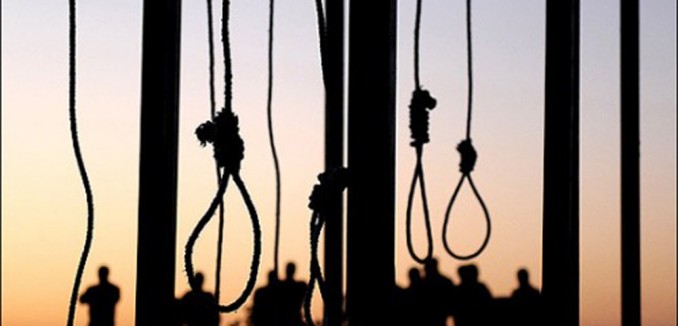The Iranian Supreme Court sentenced a man to have his eye gouged out in accordance with the country’s strict retribution laws, The Independent reported on Tuesday.
The convict, identified only as 28-year-old Saman, brawled with his then-25-year-old victim Jalal in 2011. Saman said that he unintentionally blinded Jalal during the altercation with a metal rod, according to the Norway-based organization Iran Human Rights.
Victims may inflict the same injuries they suffered on their attackers under Iran’s penal code, which includes a literal interpretation of the Sharia principle of an “eye for an eye.” A man who attacked another with acid in the city of Qoms had his left eye forcibly removed last year. The victim, who has the authority to determine whether the blinding will be carried out, decided to suspend the removal of the right eye until a later date.
The Iranian penal code also mandates harsh penalties for capital offenses including adultery, sodomy, fraud, possessing or trafficking drugs, insulting religious prophets, “waging war against God,” and “corruption on earth.”
According to United Nations rapporteur Ahmed Shaheed, there were at least 966 executions in Iran last year, the highest total in ten years. The number of executions in Iran has climbed over the past decade, and reached record yearly highs in each of the three years of President Hassan Rouhani’s tenure.
Shaheed said in October that the high rate of executions under Rouhani is an “unprecedented assault on the right to life in Iran.” At least 73 juveniles were executed by Iran between 2005 and 2015, while 160 remained on death row as of January, according to Amnesty International.
While Rouhani has often been characterized as a moderate, human rights advocates say his term in office has been marked by a steady increase in repression, including the suppression of free speech, oppression of women and gays, government-sanctioned discrimination against ethnic and religious minorities, and the imprisonment and torture of dissidents. Shortly after his election in 2013, Rouhani appointed Mostafa Pour-Mohammadi, known as the “Minister of Murder” for his role in thousands of summary executions in the 1980’s, to the post of justice minister.
Former Italian foreign minister Giulio Maria Terzi wrote in Politico in January that the nuclear deal Iran signed last year would not lead the country to moderate its behavior. “European governments are willing to talk with Rouhani about oil deals and trade partnerships even if it means actively ignoring Iran’s worsening human rights situation, its sponsorship of terror, and its destabilizing activities in the Middle East,” he wrote.
[Photo: NCRI ]




